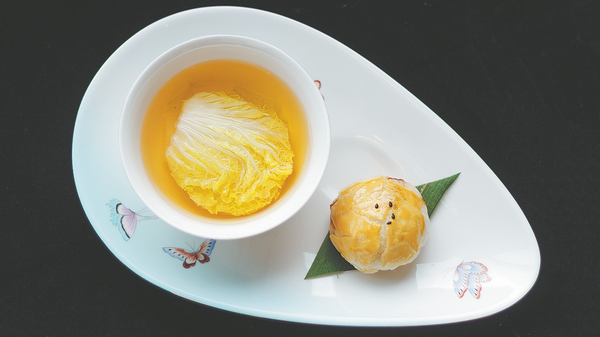

The development of Sichuan cuisine is inseparable from the abundant resources of the Chengdu Plain, including fish, shrimp, crabs and turtles from the rivers and lakes, and wild delicacies from the mountains. Seasonal vegetables and mushrooms, along with tender poultry and livestock and an abundance of high-quality brewing and seasoning ingredients round out the menu.
The Dujiangyan irrigation system on the Minjiang River in the northwest region of Chengdu Plain was built under the auspices of local governor Li Bing in 256 BC, and the area has been free from both droughts and floods ever since. During the Han Dynasty (206 BC-AD 220) and Tang Dynasty, Chengdu was one of the most prosperous trading cities in China and home to wealthy merchants who tirelessly promoted the development of Sichuan cuisine. As an important source of goods on the northern Silk Road and the starting point of the southern Silk Road, the city introduced crops such as cucumbers, walnuts, pomegranates and garlic through trading.